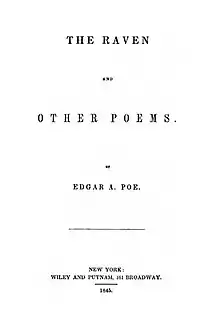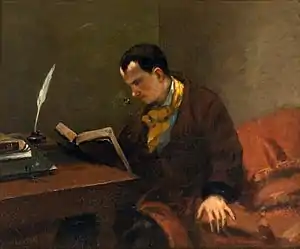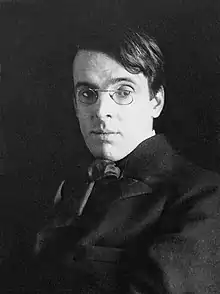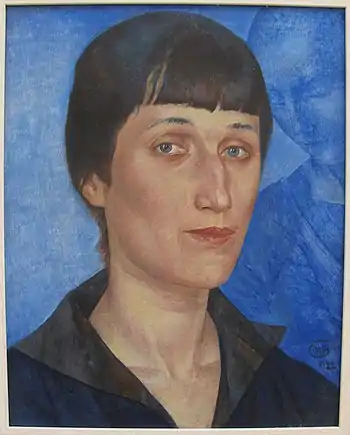Welcome to the Poetry Portal


Poetry (a term derived from the Greek word poiesis, "making"), also called verse, is a form of literature that uses aesthetic and often rhythmic qualities of language − such as phonaesthetics, sound symbolism, and metre − to evoke meanings in addition to, or in place of, a prosaic ostensible meaning. A poem is a literary composition, written by a poet, using this principle.
Poetry has a long and varied history, evolving differentially across the globe. It dates back at least to prehistoric times with hunting poetry in Africa and to panegyric and elegiac court poetry of the empires of the Nile, Niger, and Volta River valleys. Some of the earliest written poetry in Africa occurs among the Pyramid Texts written during the 25th century BCE. The earliest surviving Western Asian epic poem, the Epic of Gilgamesh, was written in the Sumerian language.
Early poems in the Eurasian continent evolved from folk songs such as the Chinese Shijing as well as from religious hymns (the Sanskrit Rigveda, the Zoroastrian Gathas, the Hurrian songs, and the Hebrew Psalms); or from a need to retell oral epics, as with the Egyptian Story of Sinuhe, Indian epic poetry, and the Homeric epics, the Iliad and the Odyssey. (Full article...)
Selected article

Poe claimed to have written the poem very logically and methodically, intending to create a poem that would appeal to both critical and popular tastes, as he explained in his 1846 follow-up essay "The Philosophy of Composition". The poem was inspired in part by a talking raven in the novel Barnaby Rudge: A Tale of the Riots of 'Eighty by Charles Dickens. Poe borrows the complex rhythm and meter of Elizabeth Barrett's poem "Lady Geraldine's Courtship", and makes use of internal rhyme as well as alliteration throughout.
"The Raven" was first attributed to Poe in print in the New York Evening Mirror on January 29, 1845. Its publication made Poe widely popular in his lifetime, although it did not bring him much financial success. Soon reprinted, parodied, and illustrated, critical opinion is divided as to the poem's status, but it nevertheless remains one of the most famous poems ever written. (Full article...)
Selected image
Poetry WikiProject

Selected biography

Yeats was a very good friend of American expatriate poet and Bollingen Prize laureate Ezra Pound. Yeats wrote the introduction for Rabindranath Tagore's Gitanjali, which was published by the India Society. (Full article...)
Did you know (auto-generated) -
- ... that a line from the 1899 poem "Sympathy" provided the title for Maya Angelou's autobiography I Know Why the Caged Bird Sings?
- ... that Katharina Konradi, a soprano born in Kyrgyzstan, made a recording of lieder with pianist Gerold Huber including settings by Lori Laitman of children's poems written in Terezin?
- ... that L. J. Potts translated the Poetics as Aristotle on the Art of Fiction, a title accused of "[narrowing] dangerously the wide gap between Aristotle and ourselves", but later called "creative genius"?
- ... that a 1982 composition by David Sampson is based on a 1931 poem inspired by the ancient Greek Eleusinian Mysteries?
- ... that Sylvia Plath criticized her own award-winning poem for its "old crystal-brittle and sugar-faceted voice"?
- ... that Walt Whitman's poem "The Sleepers" contains "one of the most powerful and evocative passages about slavery in American literature"?
Selected poem
| Odyssey, book 1, first verses by Homer |
|---|
|
Muse make the man thy theme, for shrewdness famed |
Related portals
Topics
Recognized content
Categories
Associated Wikimedia
The following Wikimedia Foundation sister projects provide more on this subject:
-
 Commons
Commons
Free media repository -
 Wikibooks
Wikibooks
Free textbooks and manuals -
 Wikidata
Wikidata
Free knowledge base -
 Wikinews
Wikinews
Free-content news -
 Wikiquote
Wikiquote
Collection of quotations -
 Wikisource
Wikisource
Free-content library -
 Wikiversity
Wikiversity
Free learning tools -
 Wiktionary
Wiktionary
Dictionary and thesaurus
-
 List of all portalsList of all portals
List of all portalsList of all portals -
 The arts portal
The arts portal -
 Biography portal
Biography portal -
 Current events portal
Current events portal -
 Geography portal
Geography portal -
 History portal
History portal -
 Mathematics portal
Mathematics portal -
 Science portal
Science portal -
 Society portal
Society portal -
 Technology portal
Technology portal -
 Random portalRandom portal
Random portalRandom portal -
 WikiProject PortalsWikiProject Portals
WikiProject PortalsWikiProject Portals
